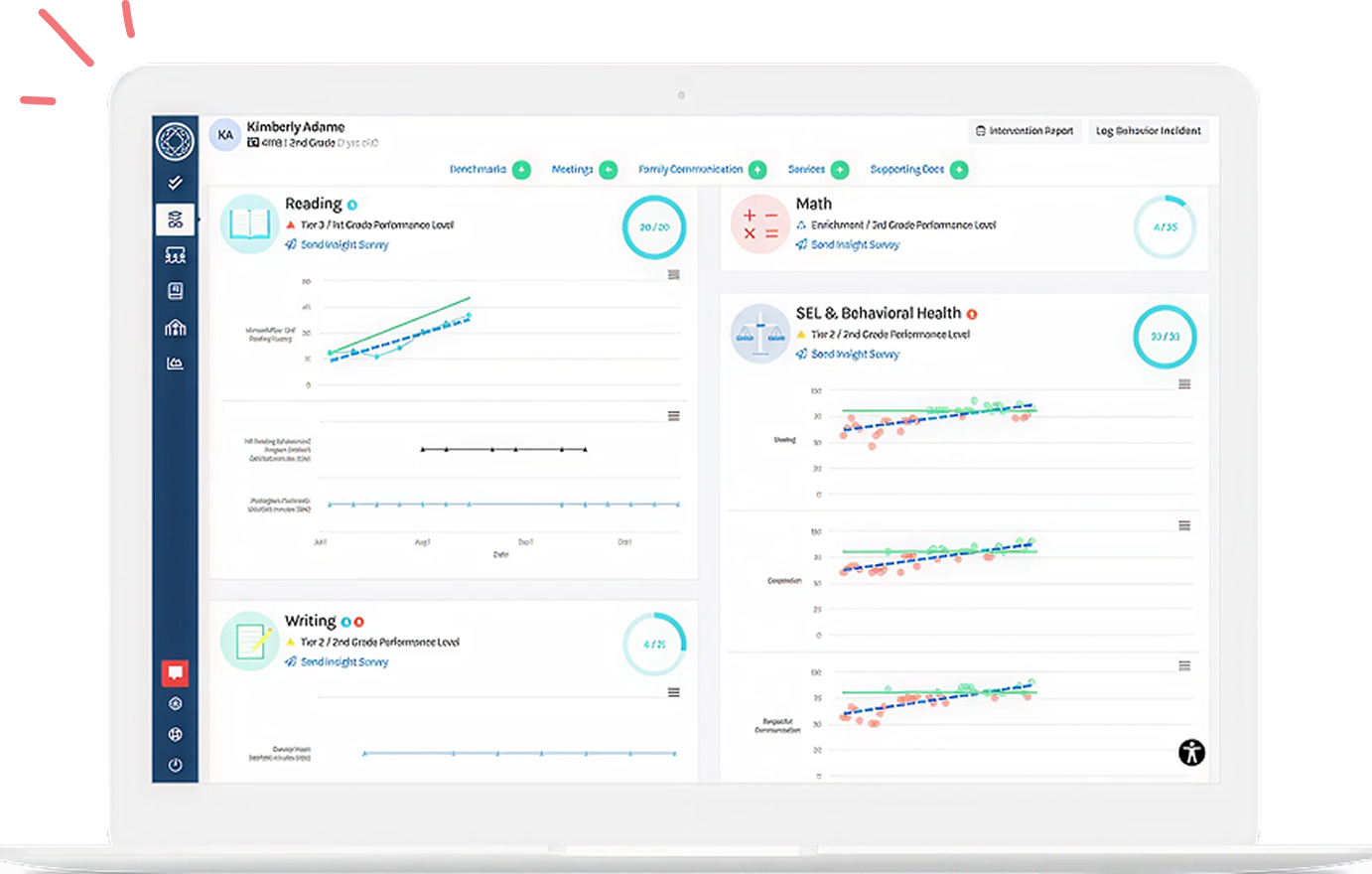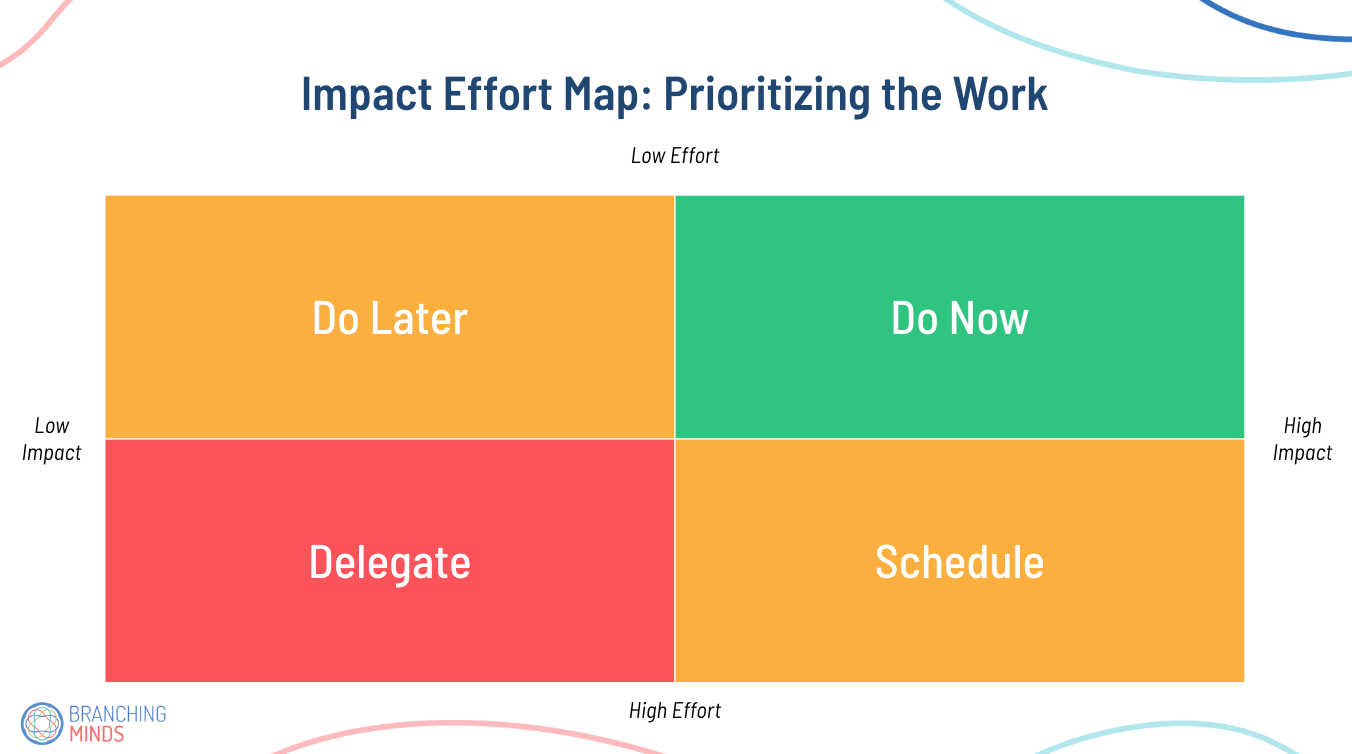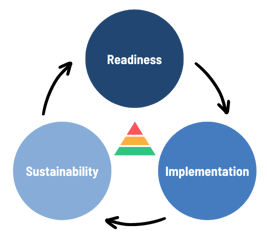How do you get the most impact out of your MTSS efforts? Impact and effort are often competing realities, so it can be a challenge to know how to strategically approach the work. An Impact-Effort Map is a tool you can use to visualize and prioritize tasks when launching your MTSS practice or with any initiative. It's a two-dimensional matrix where impact is plotted against effort in order to identify which tasks should be done now, done later, or delegated.
Here's How You Can Create & Use an Impact-Effort Map:
1. Define Criteria
Clearly define what impact and effort mean in your context. Impact could be the potential positive effect on your goals, and effort could be the resources, time, or complexity involved.2. Identify Tasks/Projects
List all the tasks or projects that need prioritization associated with the initiative that you plan to implement. Ensure that the list is comprehensive.3. Rate Impact and Effort
Assess and rate each task or project based on its potential impact and effort required.
4. Create the Matrix and Plot Tasks/Projects:
Draw a 2x2 matrix where one axis represents impact, and the other represents effort. This creates four quadrants.- High Impact, Low Effort (Quick Wins)
- “Do Now” - these tasks need to be prioritized and addressed as soon as possible.
- High Impact, High Effort (Major Projects)
- “Schedule” are high-priority tasks that will take longer to accomplish and should be scheduled with timelines and deadlines.
- Low Impact, Low Effort (Low Priority)
- “Do Later” tasks can be done when there is capacity, much like those chores we save for a rainy day.
- Low Impact, High Effort (Delegate or Remove)
- These tasks should be considered for removal from the list or delegate. If delegated, communicate to key individuals who will be responsible for this work
5. Adjust and Refine
Assess whether any adjustments are needed based on additional information, changing priorities, or new developments.
6. Communicate
- Communicate the prioritized list to relevant stakeholders. Ensure everyone understands the rationale behind the prioritization.
- Regularly review and update the Impact-Effort Map as circumstances change. This helps in keeping priorities aligned with current needs and goals.
Using an Impact-Effort Map helps you visualize the work and prioritize the most impactful and feasible projects to pursue.
💡Tips
- Educational leaders are usually juggling the implementation of several initiatives. This tool is best when focusing on one initiative, and all of the items needing to be accomplished in order to implement that change.
- This tool can serve both an individual or a team that is driving MTSS implementation.
Keep this resource on hand! Download the Impact-Effort Map.

About the author
Cailtin Crossman
Professional Services Manager at Branching Minds

Your MTSS Transformation Starts Here
Enhance your MTSS process. Book a Branching Minds demo today.












-min.png?width=1436&height=956&name=MTSS%20Implementation%20How%20To%20Identify%20Your%20Priorities%20With%20an%20%E2%80%9CImpact-Effort%20Map%E2%80%9D%20(1)-min.png)

-min-1.png?width=330&height=278&name=MTSS%20Implementation%20How%20To%20Identify%20Your%20Priorities%20With%20an%20%E2%80%9CImpact-Effort%20Map%E2%80%9D%20(4)-min-1.png)




.png?width=716&height=522&name=Tech-Learning-Most-Influential-Edtech-Product-2025(preview).png)

